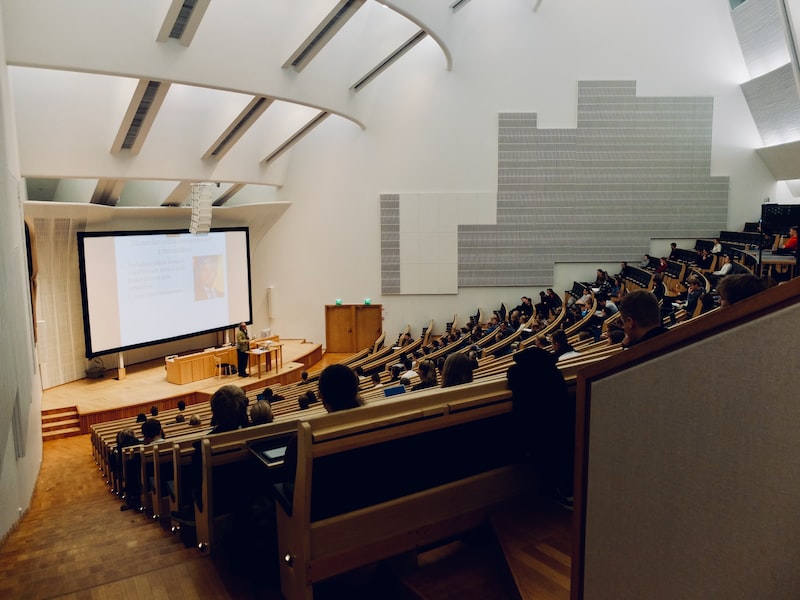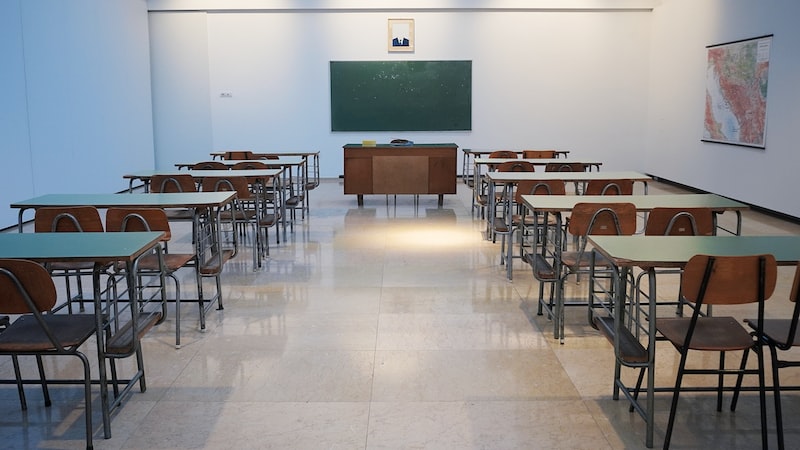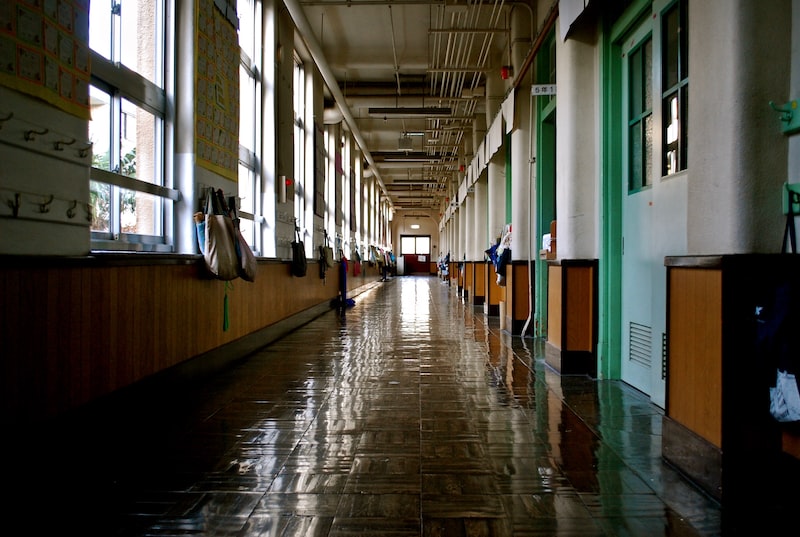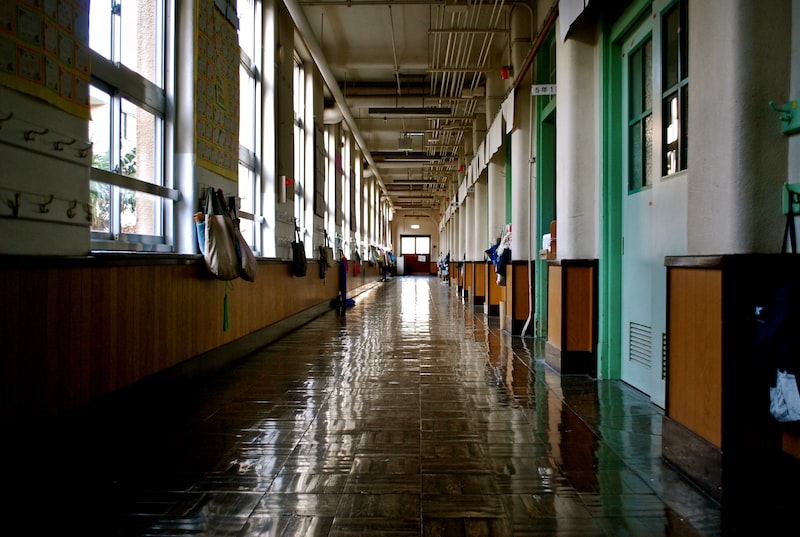
Introduction:
Did you know that early childhood education sets the stage for a child’s lifelong learning journey? It’s true! The experiences and knowledge gained during these formative years create a strong foundation that supports future academic success. In this article, we will delve into the importance of early childhood education and how it plays a pivotal role in shaping a child’s intellectual, social, and emotional development.
The Power of Early Childhood Education:
Early childhood education is like constructing a solid building. Just as a sturdy foundation provides stability to a structure, high-quality early education provides a strong base for children to grow and thrive. During these crucial years, children absorb information like sponges, making it an opportune time to nurture their curiosity and ignite a love for learning.
Intellectual Development:
Think of a young child’s mind as a blank canvas waiting to be painted with knowledge. Early childhood education helps fill this canvas with vibrant colors. By engaging in stimulating activities and age-appropriate curriculum, children develop essential cognitive skills such as problem-solving, critical thinking, and creativity. They explore the world around them, ask questions, and learn to make connections, fostering a solid intellectual groundwork that will support them throughout their educational journey.

Social and Emotional Growth:
Just as flowers need sunlight and water to blossom, children need nurturing environments to cultivate their social and emotional well-being. Early childhood education provides the perfect setting for children to interact with peers, learn empathy, and develop vital social skills. Through play, group activities, and structured guidance, they acquire valuable social abilities that empower them to communicate effectively, collaborate with others, and build meaningful relationships.
Preparation for Lifelong Learning:
Imagine early childhood education as a compass guiding children towards a lifelong adventure of learning. By instilling a love for knowledge and fostering a positive attitude towards education, children become enthusiastic learners who are eager to explore new horizons. They develop a growth mindset, embracing challenges and persisting through obstacles. This sets the stage for success in higher education and beyond, equipping them with the skills necessary to adapt to an ever-changing world.
Conclusion:
Early childhood education is the cornerstone of a child’s educational journey. It builds a strong foundation for lifelong learning by nurturing intellectual, social, and emotional development. By investing in high-quality early education, we empower children to unlock their full potential and embark on a remarkable path of discovery and growth. So let’s recognize the power of early childhood education and ensure that every child has access to this transformative experience. Together, we can shape a future filled with curious, confident, and capable individuals ready to make a positive impact on the world.
Social and Emotional Development in Early Childhood
Did you know that the early years of a child’s life play a crucial role in shaping their social and emotional development? It’s true! During this period, children undergo significant growth in their ability to understand and express emotions, form meaningful relationships, and navigate the complex world of social interactions. In this article, we’ll explore the fascinating journey of social and emotional development in early childhood.
Imagine a young child taking their first steps into the world of emotions. Like an artist with a blank canvas, they start with simple strokes—smiles, frowns, and giggles—and gradually progress to a masterpiece of emotional expression. As they grow, children learn to identify their own feelings and recognize them in others. They become better equipped to communicate their needs, wants, and thoughts, building a foundation for healthy relationships throughout their lives.
But how does social development fit into this intricate puzzle? Just like pieces of a jigsaw, social and emotional development are deeply interconnected. As children gain a stronger understanding of emotions, they also develop empathy—the ability to understand and share the feelings of others. This budding empathy becomes the cornerstone of healthy friendships, as children learn to take turns, cooperate, and compromise.
Building social skills is like learning to dance—a graceful coordination between individuals. Children begin by swaying to the rhythm of parallel play, engaging in activities side by side without direct interaction. Over time, they graduate to the tango of cooperative play, where they engage with others, negotiate roles, and collaborate on shared goals. These social experiences not only foster essential life skills but also lay the groundwork for future academic success.
As parents, caregivers, and educators, we have the power to nurture and support children’s social and emotional development. By providing a safe and loving environment, we create a solid framework for them to explore and express their emotions freely. We can model positive behaviors, teach them to manage conflicts peacefully, and encourage empathy towards others.
In conclusion, the early years of childhood are a remarkable period of growth, where children embark on a journey to develop their social and emotional skills. Like delicate flowers that blossom with care, they thrive when given the right environment and guidance. By embracing this understanding and investing in their development, we can lay a strong foundation for their future well-being and success. So let’s embark on this transformative adventure together, nurturing the social and emotional growth of our little ones every step of the way.
Physical Development in Early Childhood
Have you ever marveled at the incredible growth and development that takes place in children during their early years? It’s truly astounding how quickly they transform from tiny, helpless beings into active, independent individuals. Physical development in early childhood plays a crucial role in shaping a child’s overall well-being and sets the stage for future growth and learning.
During this pivotal stage, children experience significant milestones in their physical development. From the moment they take their first wobbly steps to the time they learn to ride a bike, every achievement is a cause for celebration. These milestones are not just about mastering new skills; they are building blocks for their overall development.
Gross motor skills are an important aspect of physical development in early childhood. These skills involve large muscle groups and enable children to perform activities like crawling, walking, jumping, and running. As they gain control over their bodies, they become more confident in exploring their surroundings. Imagine the joy on a child’s face as they take their first steps or kick a ball with newfound strength. It’s a testament to the remarkable progress they have made.
Fine motor skills, on the other hand, involve the coordination of smaller muscle groups, particularly in the hands and fingers. Think about a child learning to hold a crayon and scribble their first masterpiece. This ability to manipulate objects and perform precise movements paves the way for later skills such as writing, buttoning clothes, and tying shoelaces. It’s fascinating to witness these small hands gradually develop dexterity and precision.
Engaging in physical activities is not only essential for motor development but also contributes to a child’s overall health and well-being. Active play, whether it’s running around the playground or participating in organized sports, helps children build strength, agility, and coordination. Moreover, it fosters social interaction, boosts self-confidence, and develops important life skills like teamwork and perseverance.
As parents and caregivers, it’s crucial to provide children with ample opportunities for physical development. Encourage active play, provide age-appropriate toys and equipment, and create a safe and stimulating environment for them to explore. By nurturing their physical abilities, we empower them to reach their full potential in all areas of life.
In conclusion, physical development in early childhood is an awe-inspiring journey filled with remarkable milestones and achievements. From the first tentative steps to the mastery of complex motor skills, children are constantly growing and evolving. By supporting their physical development, we lay a solid foundation for their overall well-being and future success. So let’s cheer them on as they embark on this exciting adventure of growth and discovery!
Language and Literacy Skills in Early Childhood
Have you ever wondered about the incredible journey of language and literacy skills in early childhood? It’s a fascinating process that shapes the foundation of a child’s development. From babbling their first words to reading and writing fluently, children go through remarkable milestones that pave the way for their future success.
During the early years, children are like little sponges, absorbing everything around them. Their brains are wired to learn and acquire language effortlessly. This is why it’s crucial to provide a rich linguistic environment that fosters language development. Engage your child in conversations, sing songs, read books aloud, and encourage storytelling. These activities not only create bonding moments but also enhance their vocabulary, comprehension, and listening skills.
Literacy skills go hand in hand with language development. As children grow, they begin to recognize letters, sounds, and words. The ability to decode and understand written language becomes increasingly important. Reading to children from an early age introduces them to the magic of books and sparks their curiosity. Make it a habit to read together, exploring different genres and discussing the storylines. This helps develop their imagination, critical thinking, and communication skills.
Writing is another fundamental aspect of literacy skills. Encourage your child to scribble, draw, and eventually form letters and words. It may start with simple marks on paper, but it lays the foundation for future writing abilities. Provide materials like crayons, chalk, or finger paint to make the experience fun and engaging. As they progress, support their efforts by providing writing prompts and encouraging them to express their thoughts and ideas on paper.
Language and literacy skills are not isolated areas of development; they intertwine with cognitive, social, and emotional growth. By nurturing these skills, you’re empowering your child to become a confident communicator, an avid reader, and a skilled writer. Remember, every word spoken, book read, and writing opportunity presented is an investment in their future success.
So, embark on this incredible journey with your child. Explore the wonders of language and literacy together. Create a safe and exciting environment where words come alive, stories are shared, and imaginations soar. Witness the amazement and impact as your child’s language and literacy skills bloom, opening doors to endless opportunities.
Play-based Learning in Early Childhood Education
As a parent or educator, you’ve probably heard about play-based learning and its importance in early childhood education. But what exactly is play-based learning, and why is it such a powerful tool for young children? Let’s dive into the fascinating world of play and discover how it enhances a child’s development.
Play-based learning is an innovative approach that recognizes the intrinsic value of play in a child’s growth and learning process. It allows children to explore their surroundings, experiment with ideas, and develop essential skills through hands-on experiences. Rather than focusing solely on structured lessons and rote memorization, play-based learning creates an engaging environment where children actively participate in their own education.
Imagine a classroom resembling a vibrant playground, buzzing with excitement and curiosity. Here, children are encouraged to ask questions, solve problems, and collaborate with their peers. Through play, they can build important cognitive abilities like critical thinking, problem-solving, and creativity. Whether it’s building blocks, pretend play, or sensory activities, each play session becomes an opportunity for them to make sense of the world around them.
Furthermore, play-based learning promotes social and emotional development. As children engage in cooperative play, they learn valuable skills like empathy, communication, and conflict resolution. They develop a sense of self-awareness, understanding their emotions and those of others, laying the foundation for healthy relationships later in life. By navigating through social interactions during play, children build resilience and develop essential life skills.
In addition to cognitive and social benefits, play-based learning also supports physical development. Gross motor skills are honed as children run, jump, and climb, while fine motor skills are refined through activities like threading beads or drawing. These physical movements strengthen muscle coordination, balance, and spatial awareness, contributing to overall physical health and well-being.
By embracing play-based learning, we unlock a world of possibilities for our children. It encourages them to become active learners, fostering a lifelong love for exploration and discovery. So, whether it’s in the classroom, at home, or in community settings, let’s create spaces where play thrives, allowing our little ones to grow, learn, and flourish.
Remember, play is not just child’s play—it’s a powerful tool that shapes their future.
Parental Involvement in Early Childhood Education
Introduction:
Did you know that your involvement as a parent plays a crucial role in shaping your child’s early learning experiences? Parental involvement in early childhood education is like adding fuel to a firework; it sparks creativity, fosters a love for learning, and ignites a lifelong curiosity in children. In this article, we will explore the incredible impact of parental involvement on a child’s educational journey.
Building Strong Foundations:
Just as a gardener tends to their plants, parents are instrumental in nurturing their child’s development. When parents actively participate in their child’s early education, they provide a solid foundation for future learning. By engaging in activities such as reading bedtime stories, helping with homework, or attending school events, parents create an environment that fosters intellectual growth and emotional stability.
A Team Effort:
Education is not solely the responsibility of schools; it is a collaborative effort between teachers and parents. When parents and educators work together, children benefit from a holistic approach to learning. Regular communication between parents and teachers allows for a better understanding of a child’s strengths, weaknesses, and individual needs. This collaboration enables parents to support their child’s learning journey effectively.
Boosting Academic Performance:
Studies consistently show that when parents actively participate in their child’s education, it leads to improved academic performance. By engaging in regular conversations about school, setting high expectations, and providing a supportive learning environment at home, parents become essential partners in their child’s success. They have the power to motivate, encourage, and guide their children towards achieving their full potential.
Developing Social Skills:
Beyond academics, parental involvement also contributes to the social and emotional development of a child. When parents participate in school activities, join parent-teacher associations, or volunteer in classrooms, they demonstrate the importance of community engagement. These experiences foster empathy, cooperation, and a sense of belonging in children, helping them develop vital social skills that extend far beyond the classroom.
Conclusion:
Parental involvement is a catalyst for early childhood education. By actively participating in their child’s learning journey, parents create an environment that nurtures growth, enhances academic performance, and develops crucial social skills. Remember, as a parent, you have the power to shape your child’s educational experiences and set them on a path towards lifelong learning and success. So, let’s embrace the wonder of parental involvement and ignite the brightest future for our little ones!
Effective Teaching Strategies for Early Childhood Education
Are you looking for effective teaching strategies to enhance early childhood education? Look no further! In this article, we will explore some valuable techniques that can make a significant impact on young learners’ educational journey. By employing these strategies, you can create an engaging and enriching classroom environment that fosters optimal learning experiences.
One of the most powerful teaching strategies for early childhood education is hands-on learning. Children at this age learn best when they actively participate in the learning process. Incorporate interactive activities and manipulatives to encourage exploration and discovery. For instance, use building blocks to teach math concepts or engage them in sensory play to stimulate their senses and cognitive development.
Furthermore, incorporating play-based learning can greatly benefit young learners. Through play, children develop crucial skills such as social interaction, problem-solving, creativity, and critical thinking. Integrate play into various subjects by implementing educational games, role-playing, and group activities. This not only makes learning enjoyable but also enhances their overall development.
Utilizing visual aids and multimedia resources is another effective strategy. Young children are visual learners who grasp information better when it is presented in a visually appealing manner. Incorporate colorful charts, diagrams, and pictures to support your lessons. Additionally, leverage technology by integrating educational videos, interactive apps, and digital tools that align with the curriculum.
Establishing a positive and supportive classroom environment is essential for effective teaching. Create a safe and inclusive space where every child feels valued and respected. Encourage collaboration and provide opportunities for students to share their thoughts and ideas. Celebrate their achievements and provide constructive feedback to foster their growth.
Lastly, maintaining a flexible and adaptable approach is key. Every child has unique learning styles and abilities. Differentiate your instruction to cater to individual needs and interests. Modify your teaching methods, materials, and assessments accordingly. This ensures that each child receives personalized attention and maximizes their learning potential.
In conclusion, effective teaching strategies for early childhood education involve hands-on learning, play-based approaches, visual aids, creating a positive classroom environment, and maintaining flexibility. By implementing these techniques, educators can create an engaging and impactful learning environment that sets the foundation for lifelong learning and success. So, let’s embrace these strategies and embark on a fulfilling educational journey with our young learners!












Leave a Reply